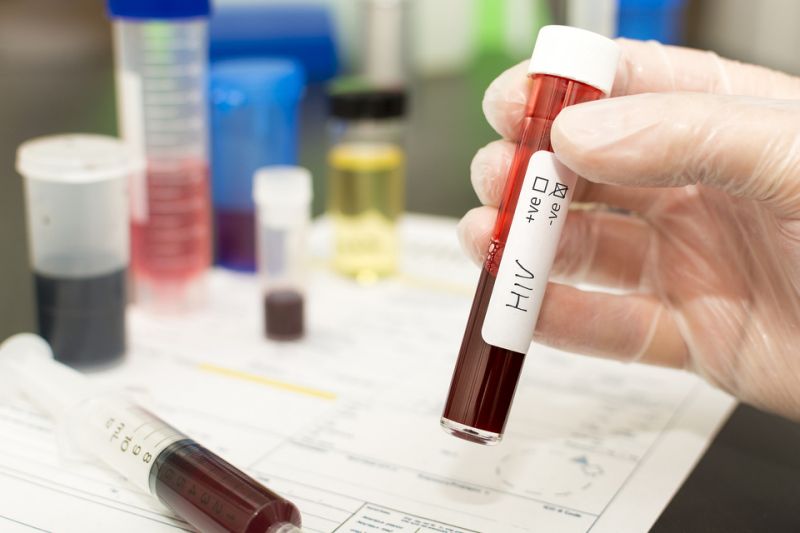AFP |
At the International AIDS Conference in Amsterdam, a doctor is on duty to prescribe methadone, a legal heroin substitute, to delegates who might be struggling with withdrawal.
A report this month by Harm Reduction International said funding for such services in low- and middle-income countries — mainly donor money — had flat-lined in the past decade.
Nelda de Grave, an addiction specialist, was not sure she would have any takers, but considers it her duty to ensure any addicts among the conference goers are “not sick, not in withdrawal”, and “well enough to follow” the proceedings.
Three came for prescriptions on Tuesday alone.
Read more: Star power dims at post-Weinstein Cannes AIDS gala
One floor down, in a large advocacy space at the conference venue, counselors staff a “harm reduction” booth stacked with boxes upon boxes of sterile needles for intravenous drug users who may need them.
No questions asked.
Such pragmatism about narcotics use and addiction may be par for the course in the Netherlands, a country known for its open-minded approach to drugs, which remain illegal.
But for many delegates, it may seem too good to be true. “We were asked (by conference organizers) to be ready especially for people from eastern Europe and (central) Asia,” de Grave told AFP.
This is a region where experts say oppressive drug laws are fuelling an HIV surge through the sharing of tainted needles. Infections with the immune system-wrecking virus that causes AIDS rose 30 percent in the region since 2010, according to a UNAIDS report.
“To be on methadone… obviously is not common in these countries, so only to attend the conference well you have to have some medication,” said de Grave. “That is why we are here.”
Reducing Harm
For epidemiologist and public health expert Chris Beyrer, “progressive drug policy can really be a critical part of controlling the HIV epidemic.”
Less than one percent of people who inject drugs live in countries where needle exchange is available, she said.
“Part of that is making sure that people who are using, are doing so in ways that are safer and are not associated with disease transmission,” he said on a visit to a nearby addiction center in Amsterdam.
The center not only offers to counsel but also offers to test drugs, including heroin, for purity and safety. Walk-in customers pay 2.50 euros (about three dollars) for a test. In the Netherlands, experts say, HIV transmission through intravenous drug use is extremely rare.
Read more: Police book 50 PML-N supporters as they ransack anti-narcotics court
The country has several needle exchange facilities and safe consumption venues. Ingrid Bakker, one of the “harm reduction” advisers stationed at the conference, said about 20 people had made use of the service in the first three days.
“We have a lot of stuff,” she told AFP, gesturing around the tiny booth. “Most of it is for injecting.” There are needles and syringes, and sterile cups for dissolving heroin.”You can also do it in a spoon, of course, that’s what most people do, but this is sterile,” she said.
There are filters for removing impurities from the liquid heroin mix, sterilizing wipes, pads to apply pressure to the price point, and portable, yellow, plastic bins for discarding used needles. “This is tinfoil for… if you want smoke heroin,” said Bakker, pointing out another product.
‘Support. Don’t punish’
“In the Netherlands, we have very good quality heroin so there’s a lot of people who don’t inject heroin but they smoke it from foil, ‘chasing the dragon’.” This is a form of harm reduction, she explains, as it presents an alternative to injecting.
There are booklets of sniffing papers too, with tips handily printed on them. “Crush and chop the powder as finely as possible,” the sheets advise. “Be kind to your nasal passage and go for small lines.”
The papers help stop the spread of Hepatitis C, which can cause liver disease, said Bakker. “People use straws, for instance, which are quite sharp. If you share them and if you have … just a tiny, tiny, tiny bit of blood… it (the virus) could be transferred.”
One floor down, in a large advocacy space at the conference venue, counselors staff a “harm reduction” booth stacked with boxes upon boxes of sterile needles for intravenous drug users who may need them.
According to Ann Fordham, who leads the International Drug Policy Consortium, an advocacy network, there was a 30-percent increase in HIV among people who inject drugs worldwide between 2011 and 2015.
Read more: Recent study unveils another causative of depression and opens doors for…
Less than one percent of people who inject drugs live in countries where needle exchange is available, she said.
Activists at the AIDS conference launched a campaign entitled “Just say no to the war on drugs” — a direct challenge to the Ronald Reagan-era slogan “Just say no” at the height of America’s “war on drugs”.
“I said no to drugs but they didn’t listen,” reads one slogan of the alternative campaign.”Support. Don’t punish,” states another.
A report this month by Harm Reduction International said funding for such services in low- and middle-income countries — mainly donor money — had flat-lined in the past decade.
In 2016, $188 million (161 million euros) was allocated — the same as in 2007, it said.”Simply put, the lives of people who use drugs are being neglected,” charges the report.
© Agence France-Presse














